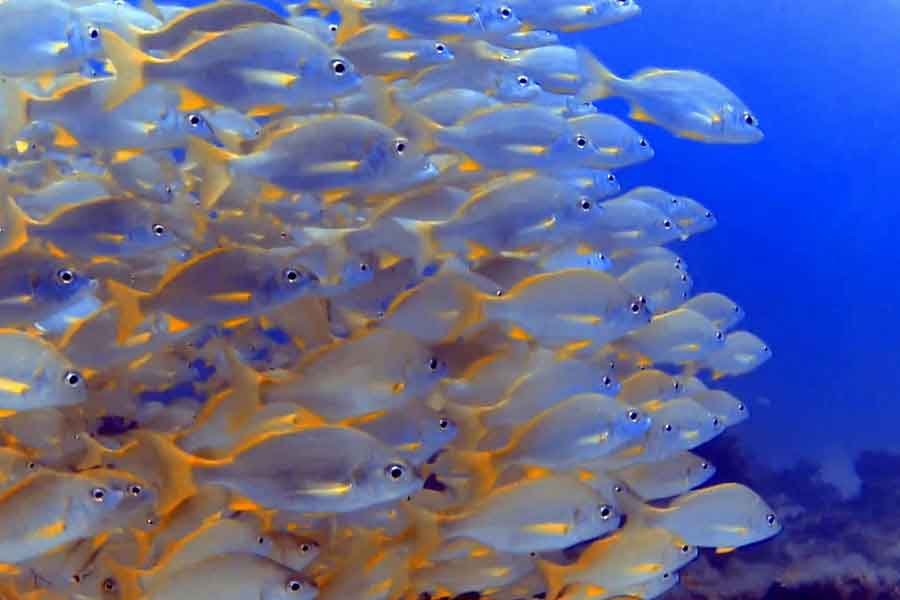
When it comes to reproduction, most fish abandon their eggs as soon as the female lays them and the male fertilizes them. These eggs then float freely in the marine plankton or are deposited on the reef, waiting for the moment of hatching.
This method results in the loss of the majority of the eggs, either consumed by predators or because they are deposited in a location where they do not receive sufficient oxygen. However, in some cases, parents employ specific strategies to ensure the highest number of offspring.
Among the grunters, a group of small reef fish, the female deposits the eggs into the mouth of the male, who fertilizes them immediately and secretes a mucous slime to enhance their adhesion. For a week, the male carries this precious burden, ensuring good oxygenation for the eggs. He will make efforts to keep them away from predators until the fry, which are entirely independent from birth, can fend for themselves.
The father’s care pays off, as larger eggs have a higher life expectancy and produce healthier and stronger fry. Moreover, the fact that the male assumes the responsibility of caring for the fertilized eggs allows the female to dedicate sufficient time to feeding and replenishing her energy to produce a new clutch soon.
It is uncertain whether by accident or out of hunger, the male consumes around thirty percent of the eggs—perhaps as a tribute for his dedication or simply due to cannibalism. Nevertheless, this number is much lower than the number of eggs that would have perished in the jaws of predators. In every corner of the Earth or the sea, life finds a way each day, every hour. With an ineffable punctuality, animals fiercely strive driven by the most ancestral of instincts: to preserve their species.
«You cannot defend what you do not love, and you cannot love what you do not know.»

